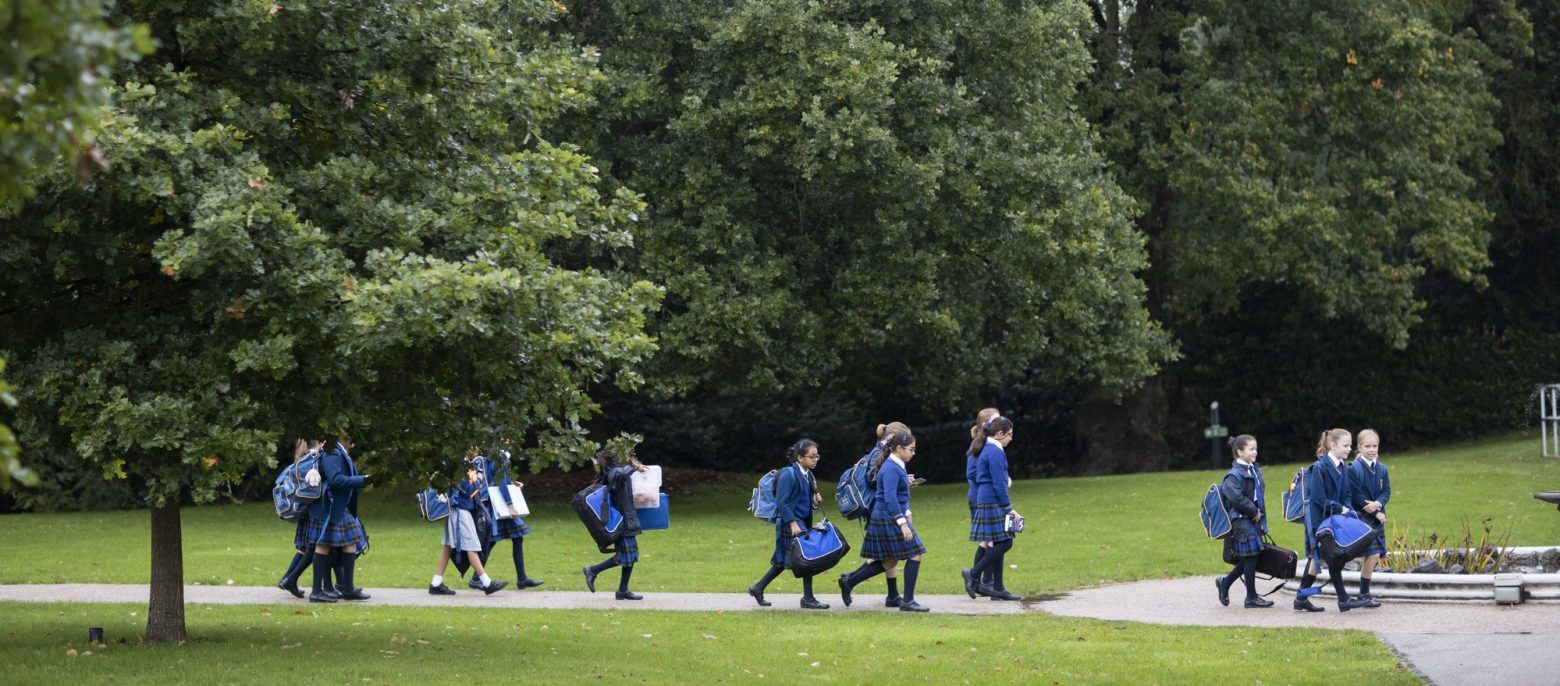All our pupils are tracked and monitored from the day they start with us, both formally and informally. Once an initial concern has been raised about the progress of a child, the class or specialist teacher will liaise with the Learning Support Co-ordinator and Senior Leadership Team, as well as parents.
Parents are also encouraged to approach the class teacher in the first instance, or our designated Learning Support Co-ordinator, Ms Salomé Humanes, if they wish to discuss matters relating to their child’s learning or progress.
As early identification is key, parents are requested to disclose the nature of any learning difficulties at the time of an admissions application to the school; this would include any known family history of, for example, dyslexia or speech and language difficulties. Please let us know about any disruptions, trauma, bereavement or illness within the family or extended family, as these can have an impact on your daughter’s learning, albeit temporarily.
Pupils with identified learning needs are documented on our SEND register. All staff refer to the SEND register, ensuring collaborative working relationships and consistency in care and approach. Our Heads of Pre-Prep and Juniors provide extended pastoral care, assisted by the Assistant Head Pastoral, Mrs Claire Copeland, Sister Ursula, the class teacher(s) and the Learning Support Co-ordinator, to ensure that the needs of the individual child are met.
We are able to support pupils with a mild to moderate range of learning difficulties such as dyslexia, dyspraxia, mild speech and language and semantic pragmatic language disorders, low level attention deficit (hyperactive) disorder, as well as those some social communication difficulties.
The provision for a pupil who needs extra support may include differentiated work and practical resources such as use of checklists, sand timers and pencil grips. Pupils may be placed on a specialised reading programme, asked to attend an ‘early bird’ session, weekly spelling session, or may be taught individually or in small groups by the class teacher, teaching assistant or Learning Support Co-ordinator. We encourage parents and carers to be actively involved in supporting their child’s learning needs at home, to mirror practice in school.
In addition, it may be beneficial for the pupil to have some individual lessons tailored to specific needs, once or twice a week. These sessions will be generally timetabled during the school day and can be arranged through the Learning Support Co-ordinator. The cost of this additional peripatetic tuition is agreed and paid by the pupil’s parents.
If necessary, some pupils will have an agreed set of targets, known as an Individual Education Plan (IEP), which are reviewed twice a year with parents, the class teacher and the Learning Support Co-ordinator. This IEP is made available to all relevant teaching staff. Learning Profiles (LPs) may also be created for those pupils with additional needs. These are written in conjunction with the child, parents and teachers, and enable all staff to have a clear understanding of the needs of the child and what day to day adjustments should be in place. These may include sitting near the board or using an increased font size in written resources for learning.
The Learning Support Co-ordinator has strong collaborative links with external SEND professionals, such as educational psychologists, occupational therapists and speech and language therapists; recommendations for external help may be sought, or made at any time. Please note, it is important to consult with school before seeking any outside professional advice.
At Holy Cross we aim to provide every child with a holistic education in a happy, nurturing and caring environment; we want your daughter to grow in confidence by realising her own unique strengths in learning and understanding. We will help her identify useful strategies, which she can transfer to her own learning in the classroom and beyond, allowing her to flourish as an individual.


